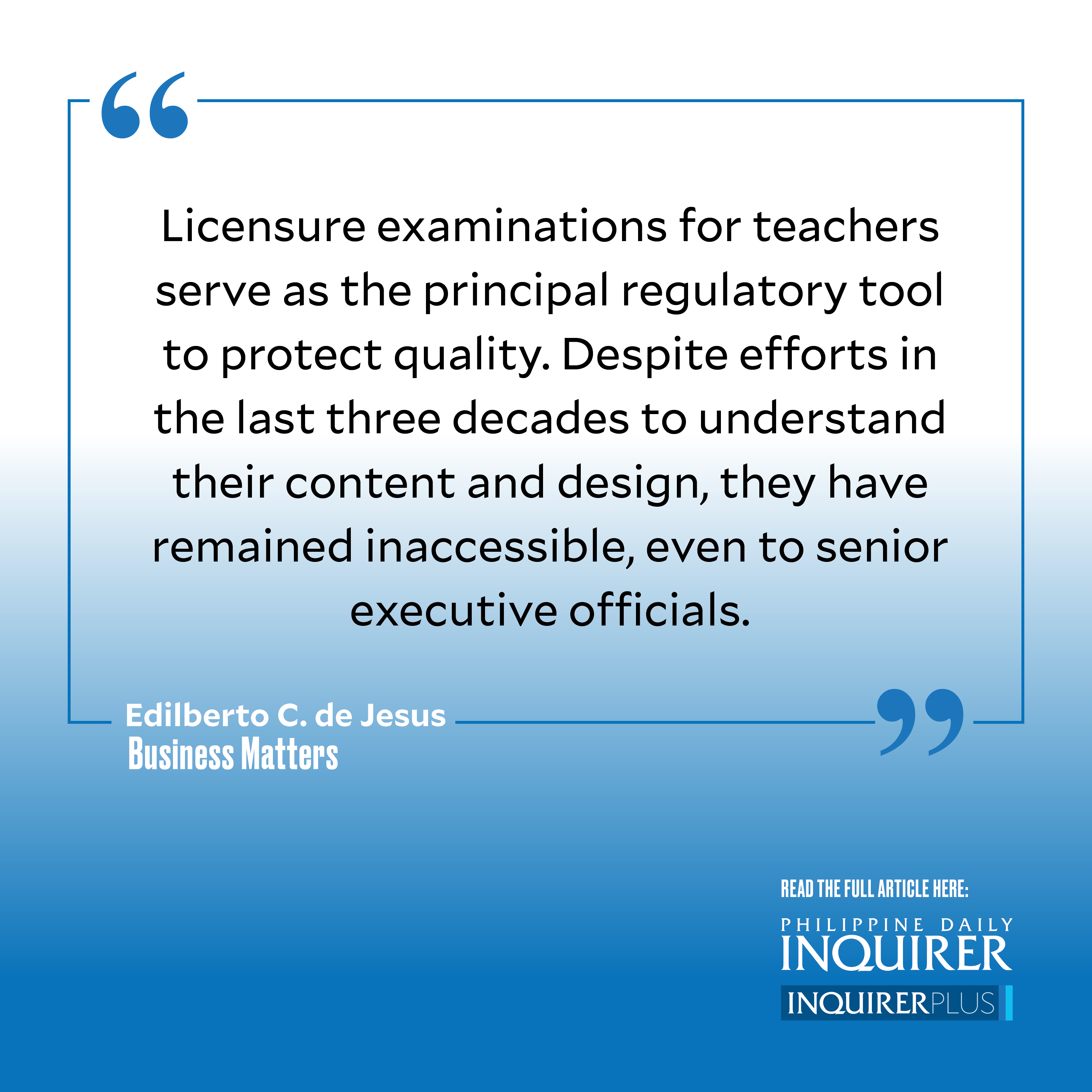Harvesting education’s low-hanging fruits

Frequent flyers to Philippine Business for Education’s (PBEd) higher education summits agreed that last month’s gathering provided the most sharply focused discussion on the education crisis. Perhaps, because of PBEd’s investment in sustaining over a decade a dialogue among institutions committed to education and now concerned about its downward direction. Nearly 40 percent of their representatives to the 2023 summit participants were repeat customers.
The scope and gravity of education problems, exposed by international assessment tests, also made it difficult to rehash to death issues rigorously researched and repeatedly raised by PBEd since its first summit in 2013. Some of these issues have been on PBEd’s radar since its founding in 2006, both excusing the impatience of veteran summiteers and encouraging their hopes, finally, for meaningful action.
Some conclusions can no longter be disputed or ignored. Many participants were more directly accountable for tertiary education outcomes, actually the announced focus of the fifth summit. But even higher education executives acknowledged the upstream sources of their problems. Most of them come from private institutions, which have largely abandoned the basic education market, now almost 90 percent controlled by the Department of Education (DepEd). But what do they do when applicants come to their colleges with basic learning competencies at Grade 6 or 7 levels?
Although not targeting any single administration, this phrasing of the problem, perhaps, unfairly fixes the blame on DepEd. Many parties contributed over an extended period of time to bring us to the point we have reached. And it would certainly not be fair to blame the sorry state of basic education entirely on public school teachers, often victims themselves of systemic failures. What do we tell teachers, who repeat back to us our own data that 30 percent of the children ready for schooling suffer from malnutrition and possibly impaired learning capacity?
DepEd implements feeding programs, sometimes encountering their share of problems, but DepEd teachers are not responsible for the children’s first 1,000 days of life and their pre-kindergarten years. Nor have they been prepared for children entering school without sufficient comprehension of the language used as the medium of instruction in their local schools. Among six Asean countries that participated in the 2019 SEAMEO Primary Learning Metrics examinations in Grade 5 reading, writing, and math, only the Philippines conducted the test in English, spoken at home by only 10 percent of the children, with dismal results.
DepEd should thus welcome the recent PBEd report on teacher quality. While it cannot escape responsibility for learning outcomes, PBEd research allows appeal to the “peanut butter defense” to spread accountability. DepEd deploys almost 900,000 teachers. But it does not control the teacher education institutions (TEI) on which it depends to stock, refresh, and replenish teacher ranks.
Although steadily losing market share, the private sector still dominates the higher education space. Private schools account for 60 percent to 70 percent of teacher education programs, which attract the second highest collegiate enrollment. As PBEd concedes, if TEI graduates do not measure up to the task, the “onus” of the failure also falls on higher education institutions, both public and private.
Upon reviewing licensure results, PBEd ranked TEI performance based on reasonable, perhaps, even generous standards. TEI that recorded a passing rate of 75 percent in seven of the 12 years, between 2010 and 2022, received recognition as “high-performing.” Yet, only 2.2 percent of the TEI, sending at least 300 graduates to the tests, merited the award. Among TEI-designated centers of excellence (COE), 68 percent failed to make the high-performance mark.
TEI performance also implicates the regulatory agencies enforcing general and COE standards. A World Bank 2016 study noted that basic education teachers could answer correctly less than 50 percent of subject content tests. Only 39 percent of TEI faculty comply with the Commission on Higher Education requirement for a post-graduate qualification.
Licensure examinations for teachers serve as the principal regulatory tool to protect quality. Despite efforts in the last three decades to understand their content and design, they have remained inaccessible, even to senior executive officials. PBEd analysis of licensure performance results renews questions about the examination’s “relevance and appropriateness … to screen professional teachers.”
Not surprisingly, 2023 summit participants focused on assessment as an area for urgent action. Surely, after 30 years, a low-hanging fruit ripe enough for the picking.
——————
Edilberto C. de Jesus is professor emeritus at the Asian Institute of Management.
——————
Business Matters is a project of the Makati Business Club ([email protected]).















